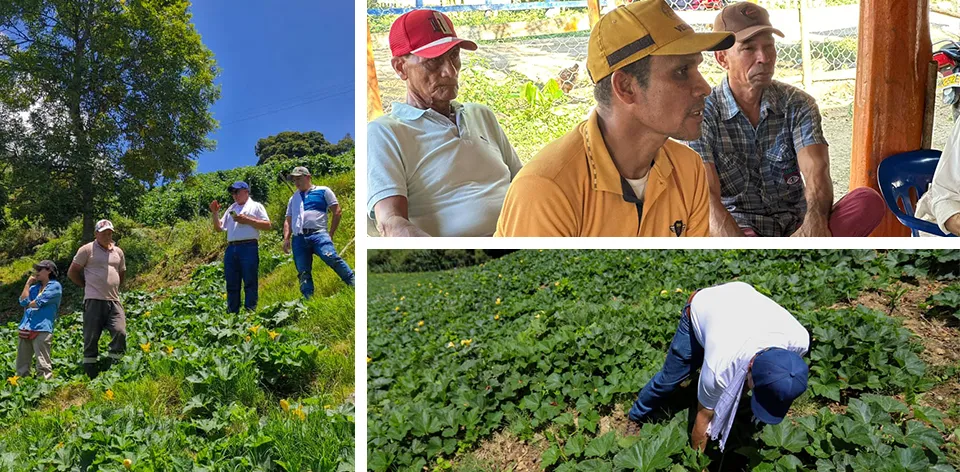 26/9/2024
26/9/2024
The countryside does not stop: we build coconut, squash, and industrial hemp zoning with and from the regions.

The technical team of UPRA visited more than 50 municipalities in 9 departments to develop, together with grassroots farmers, associations, and regional stakeholders, the suitability zoning for coconut, squash, and industrial hemp.
Currently, UPRA is also advancing in the development of the suitability zoning for artisanal marine fishing and irrigated rice.
Bogotá, D.C. (@UPRAColombia, @alexander_rodr_, @dorairey). We build suitability zoning for coconut, squash, and industrial hemp from and with the territories, traveling through more than 50 municipalities in 9 departments of Colombia: La Guajira, Magdalena, Cesar, Valle del Cauca, Córdoba, Antioquia, Sucre, Cundinamarca, and Meta.
"UPRA's objective is to disseminate and validate variables, ranges, and criteria for productive chains, and to integrate traditional knowledge and practices from grassroots farmers and producers into land suitability zoning exercises in Colombia," explained UPRA's acting director, Dora Inés Rey Martínez.
Zoning is a fundamental tool for rural agricultural planning of productive chains in our country. It serves as the foundation for instruments such as the Productive Zoning Plans (POP) or the Master Plans for Agricultural Productive Transformation (PMRPA).
"Squash, coconut, and hemp are products deeply rooted in Colombia’s smallholder, family, ethnic, and community agriculture. That is why they have been prioritized for the collective development of land suitability zoning at a scale of 1:100,000. It is crucial to understand the differences, commonalities, and regional particularities. The national fieldwork involved in this process will provide us with a planning tool that positions Colombia as an agri-food powerhouse," noted Renato Baldovino, technical leader of the zoning efforts at UPRA.
Land suitability zoning constitutes a methodological approach for evaluating land for agricultural purposes nationwide. The methodology, at a 1:100,000 scale, includes biophysical, social, economic, and environmental criteria.
Meanwhile, UPRA technical experts Sebastián Polo and Gabriel Páramo concluded: "This opportunity to work in the territories with indigenous communities from the Sierra Nevada de Santa Marta, with farmer associations from Valle del Cauca and the Eastern Plains, in both the humid and dry Caribbean regions, or with the farming bases in Colombia’s mountains makes this technical effort truly reflect the productive diversity that characterizes our country."
Visit our website upra.gov.co to explore the national land suitability zoning efforts we have developed. Navigate their spatial representation through our Rural Agricultural Planning Information System (SIPRA).

